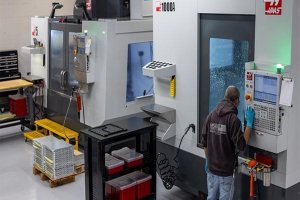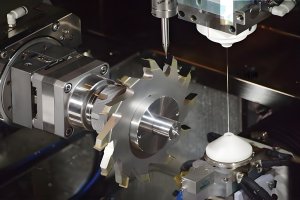Introduction to Beryllium Copper vs. Standard Copper
The comparison between beryllium copper and standard copper revolves around their differences in two significant properties – electrical conductivity and strength. To start, it’s necessary to clarify what both terms mean. Beryllium copper, also known as beryllium bronze or spring copper, is a copper alloy with 0.5-3% beryllium that lends superior strength, hardness, and corrosion resistance compared to other alloys.
- Standard Copper: In contrast, standard copper, primarily pure copper (also referred to as Elektron , E-Copper), embodies the traits of high ductility, excellent thermal and electrical conductivity but possesses less strength compared to its beryllium counterpart. It’s commonly used in applications demanding high current flow across short distances due to its superb conduction properties.
To comprehend better their respective properties, let us continue exploring the properties of beryllium copper and standard copper – particularly focusing on their strengths and conductivities.
Key Characteristics of Standard Copper
Standard copper, in its raw form, is identified by its chemical properties, chiefly, it’s a highly ductile metal with excellent thermal and electrical conductivity. Bearing the atomic number 29 and symbol Cu, this reddish-brown metal offers high resistance to corrosion and degradation making it ideal for numerous applications across industries. The physical properties like malleability, machinability, and ease of joining further enhance its usability.
The high electrical conductivity of standard copper defines its primary use cases, predominantly as an essential material in various types of conductors. Be it power generation and distribution wires, telecommunication cables or circuit boards, copper’s outstanding electrical conductivity greatly facilitates efficient energy transmission. For instance, a residential power grid utilizes thick copper wires due to their low resistivity, ensuring smooth current flow and minimal energy loss.
- Ductility: The capacity of copper to be drawn into thin wires makes it superior for conducting electricity.
- Thermal Conductivity: It helps in dissipating heat which aids cooling mechanisms in various systems such as radiators and air conditioners.
- Machinability: This suggests that copper can easily be shaped and manipulated according to specific industrial requirements.
- Corrosion Resistance: Copper’s strong defense against environmental elements further escalates its demand in constructal applications too.
Distinctly recognized for these complex yet beneficial traits, standard copper remains synonymous with strength and conductivity, attributing to its significant role in engineering and technological innovations.
Key Characteristics of Beryllium Copper
Beryllium copper, fondly referred to as BeCu or beryllium bronze, stands tall in the realm of high-performance metals. Its key chemical and physical properties propel its demand across various industries. This alloy is a concoction of 0.5% to 3% beryllium with copper constituting the majority.
- Density: It has a density lower than that of pure copper.
- Melting Point: With a melting point ranging between 800-1800°C, it exhibits significant heat resistance.
- Elastic Modulus: Given its high elastic modulus, it is notably less stretchy than most other copper alloys.
- Thermal Conductivity: While not as conductive as pure copper, BeCu’s thermal conductivity ranges between 105-230 W/(m·K).
Focusing on the practical applications incited by these characteristics,
- The impressive strength-to-weight ratio ushers in an expansive usage in aerospace industry.
- The thermal resistance fends off deformation under extreme conditions, paving the way for utilization in automotive applications.
- The thermal conductivity enables efficient dissipation of heat, making it ideal for electronic devices like insulative heat sinks.
A Comparative Study between Beryllium Copper and Standard Copper: Conductivity
In the realm of electrical applications, the conductivity of the material is a paramount factor that influences performance and efficiency. This section delves into a comparative analysis of the electrical conductivities between beryllium copper and standard copper, highlighting how these differences impact their suitability for various applications. For projects requiring precise conductivity specifications, our Precision Machining Service offers tailored solutions that cater to the unique needs of each application.
Electrical Conductivity Comparison
Understanding the electrical conductivities of beryllium copper and standard copper is crucial for selecting the appropriate material for specific applications:
- Standard Copper: Known for its outstanding electrical conductivity, standard copper sets the benchmark with a conductivity rating of 100% IACS (International Annealed Copper Standard).
- Beryllium Copper: While beryllium copper offers a range of mechanical benefits, its electrical conductivity is approximately 20-60% IACS, depending on the alloy composition and heat treatment.
Impact on Application Suitability
The difference in electrical conductivity between these two materials directly influences their application in the industry:
- High Conductivity Requirements: For applications where high electrical conductivity is critical, such as in power generation and transmission, standard copper is often the preferred choice.
- Balance of Conductivity and Strength: In scenarios where a balance between conductivity and mechanical strength is required, beryllium copper becomes a viable option, offering moderate conductivity alongside enhanced strength and durability.
In conclusion, the choice between beryllium copper and standard copper hinges on the specific requirements of the application, with each material offering distinct advantages in terms of electrical conductivity. For those seeking to optimize the performance of their electrical components, our Precision Machining Service provides the expertise and technology necessary to achieve the desired outcomes.
Comparative Study Between Beryllium Copper and Standard Copper: Strength
In the strength versus standard copper debate, beryllium copper surely holds an edge. This is due to the strengthening effect of beryllium on copper when alloyed together. When measuring tensile strength, for instance, beryllium copper showcases significantly higher values as compared to pure or standard copper. The additional hardness imparted by beryllium also contributes substantially to enhanced wear resistance in this alloy, potentially leading to longer product longevity.
- Tensile strength: Beryllium copper exhibits a high tensile strength owing to its intrinsic composition, often outperforming standard copper in applications demanding durability and resilience.
- Hardness: The hardening effect that Beryllium imparts on copper results in an alloy which boasts superior hardness levels than those observed in pure copper. This characteristic amplifies the material’s ability to resist friction and wearing off over extended periods or under taxing conditions.
- Product Longevity: Considering the aforementioned factors, products made from beryllium copper tend to have a prolonged operational life as they can withstand significant stress, wear and tear better than their standard copper counterparts.
Pros and Cons of Using Beryllium Copper Versus Standard Copper
The choice between beryllium copper and standard copper largely depends on the specific requirements of a project. Standard copper boasts exceptional electrical conductivity, making it ideal for use in power cables and wires.
- Pro: It is relatively ductile and easy to work with, thereby simplifying installation processes.
- Con: However, its lower strength can be a limiting factor when used in structurally intensive applications or harsh operating environments.
In contrast, beryllium copper offers an impressive blend of strength and conductivity.
- Pro: This alloy is notably more robust than regular copper, enabling it to withstand elevated strain levels. Its high endurance promotes a longer service life, particularly in demanding settings such as heavy industry and aerospace.
- Con: On the downside, beryllium copper is less conductive compared to pure copper. Moreover, it requires additional caution during handling and machining due to beryllium’s toxicity.
For both materials, cost considerations may also come into play. As a general rule, beryllium copper tends to be more expensive given its enhanced properties and more involved production process.
Conclusion
In conclusion, both Beryllium Copper and Standard Copper have distinct properties that suit certain environments and applications. An understanding of these differences is crucial in determining the best fit for specific needs.
Beryllium Copper’s strength and durability make it a suitable choice for industries which demand high-stressing conditions such as aerospace manufacturing and oil drilling operations. It boasts rigidity, formidable conductivity, and an overall better performance while serving demanding application parameters.
On the other hand, Standard copper finds its place primarily in transmitting power due to its excellent electrical conductivity. Its use spans across sectors like electronics production, telecommunication, and power generation.
It’s essential to take into account the environment and intensity of usage before opting for one over the other. These strategic choices significantly impact the efficiency and longevity of industrial operations.
Other Articles You Might Enjoy
- The Role of Material Conductivity in CNC Machining: Copper vs. Aluminum Efficiency
CNC Machining and the Importance of Material Selection Computer Numerical Control (CNC) machining is a prevalent method in manufacturing where pre-programmed computer software regulates the movement of factory machinery. This…
- Brass vs. Copper in Custom Parts Manufacturing: A Comparative Analysis
Introduction to the Importance and Uses of Metals in Custom Parts Manufacturing In custom parts manufacturing, metals play a significant role due to their robustness, versatility, and adaptability. Frequent application…
- How do I care for parts made of precision machined copper?
Introduction to Precision Machined Copper and its Care Precision machined copper components are essential in a variety of high-tech industries due to their excellent electrical and thermal conductivity, coupled with…






